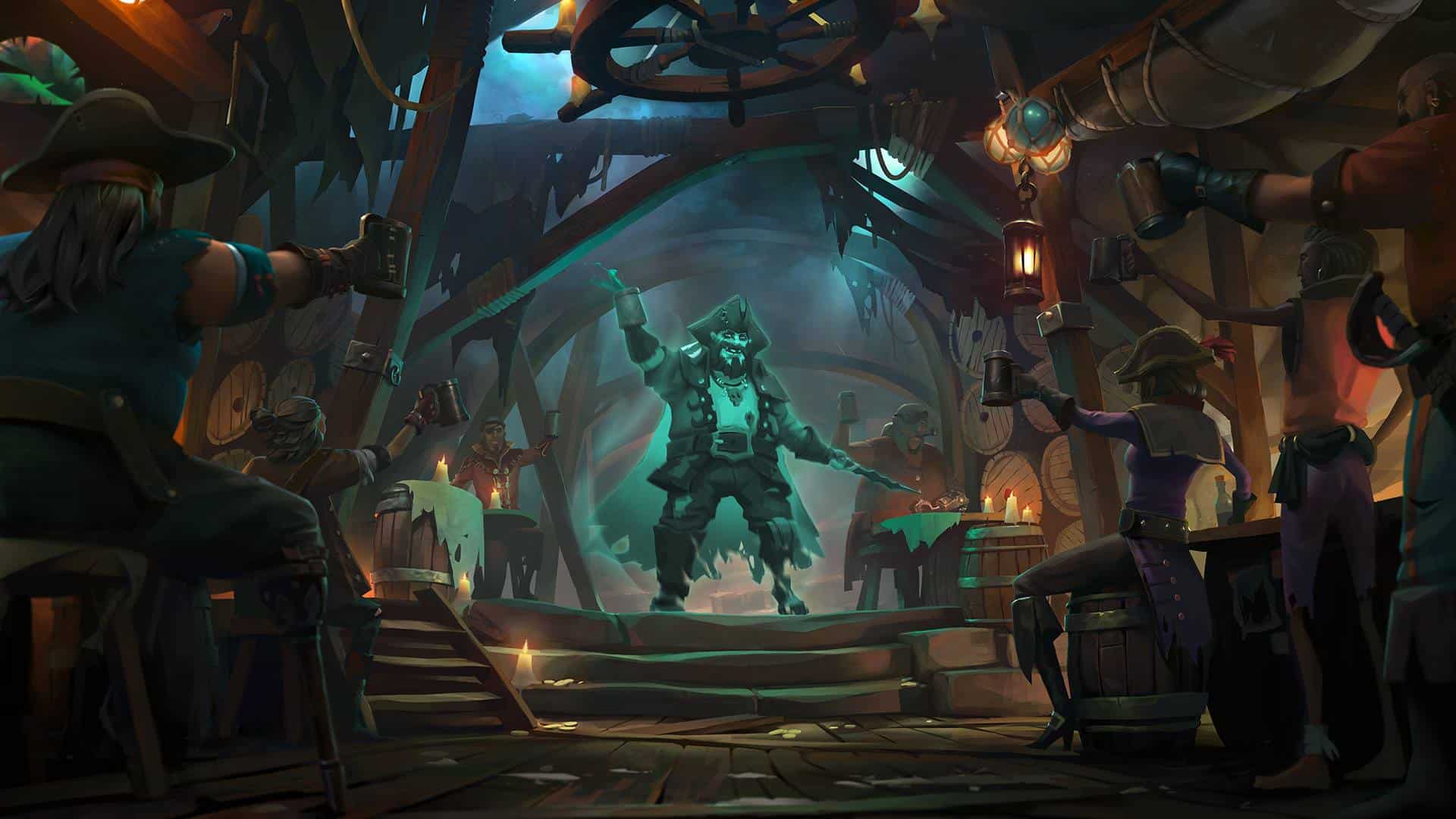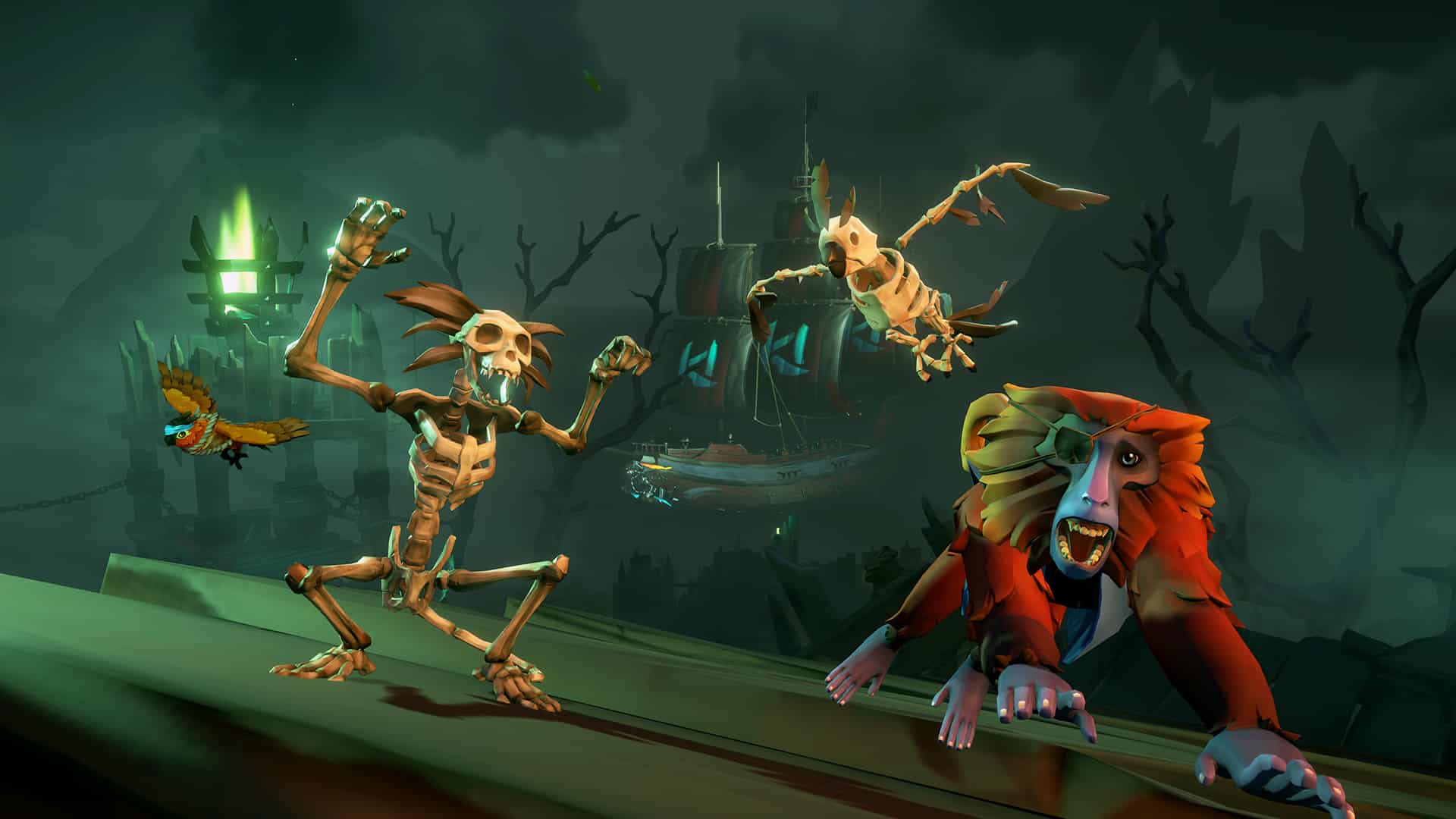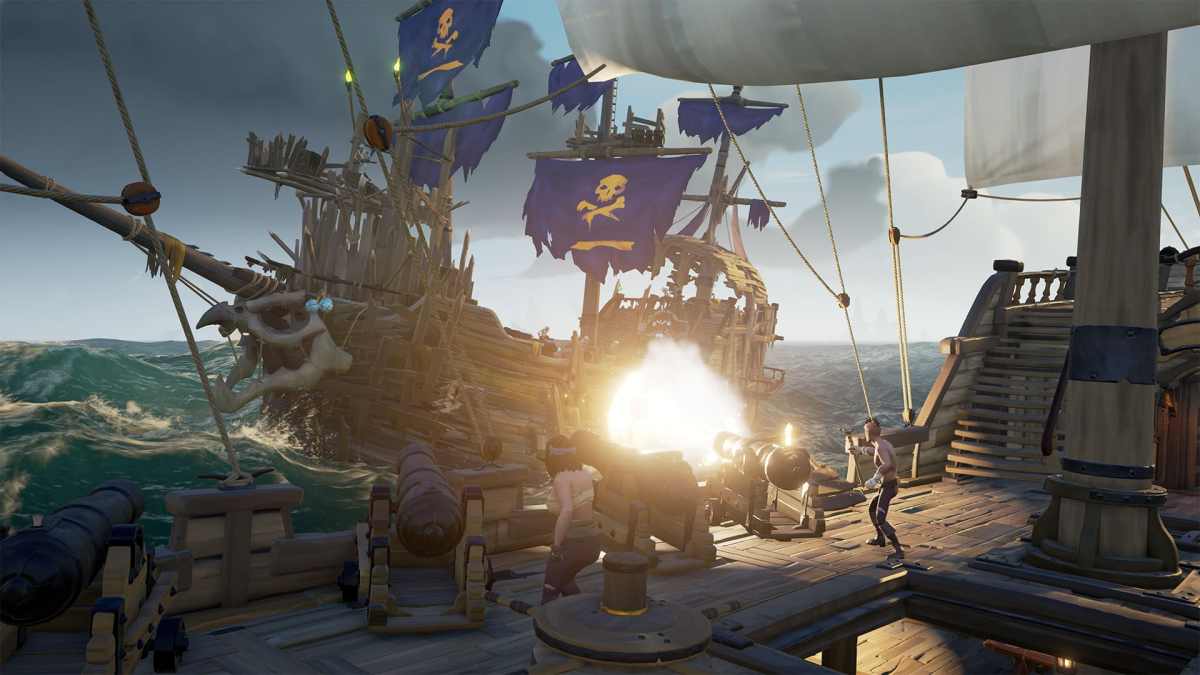As the first major release from Rare in a long time and the debut first-party Xbox game to launch directly onto Game Pass, Sea of Thieves had a lot riding on it two years ago. For longtime fans, the prospect of a pirate game from Rare seemed like the culmination of decades of groundwork, while Microsoft needed a hit to compete with Sony and Nintendo’s consistently impressive exclusives. But when Sea of Thieves launched, it wasn’t the console-seller Team Xbox had hoped it would be. With mediocre review scores and players decrying a perceived lack of content, Sea of Thieves seemed to be sinking just as its sails were hoisted.
But that was two years ago. In the time since, Sea of Thieves has gone on to prove the potential of a live-service game. No one could easily argue today that Sea of Thieves is anything less than one of Xbox’s great successes of the generation, and a lot of that success is owed to what the team at Rare is doing with storytelling.
If you haven’t played Sea of Thieves, or maybe just haven’t played in a while, it’s not exactly the multiplayer-only pirate adventure it used to be. From last April with the launch of the Anniversary Edition, Sea of Thieves has been fleshing out its world with a genuine story mode unlike anything in games. Today the story features 12 chapters each taking a few hours to complete, and many of those act as sequels to earlier stories. Alongside a host of major shake-ups to the title over two years of monthly content drops — like giant sharks, PVE ship battles, and fishing mechanics — it’s Sea of Thieves‘ “Tall Tales” story mode that has impressed me the most.
It’s not that other multiplayer games aren’t offering story content in their shared worlds. MMO-style games similar to Sea of Thieves such as Destiny, The Division, and Grand Theft Auto Online all offer story quests with their own bosses to defeat and puzzles to solve, but the difference in Sea of Thieves is your band of pirates can live out its grand narrative adventure in a live gameplay environment, walking a line between old-guard narrative and new-age emergent story.
Each Tall Tale uniquely feels like a real lived-in experience. It’s something the first-person game has already done so well thanks to effective, tactile controls — raising the anchor, digging for gold, steering the ship, and so on. Every action has weight and presence to it. Now, Rare has managed to deliver a similar sense of time and place through its atmospheric storytelling amid a sea of other players. It’s exciting to be off chasing the next piece of each elaborate puzzle found within the dozen Tall Tales only to run into another crew. Maybe they’ll tag along for the adventure, aid you in a tough puzzle, or even help you take on a boss. When they do, they don’t receive quest rewards as you do, as they never officially initiated the mission in their crew, which means they’re acting out of the goodness of their own Jolly Roger hearts.
There are some frustrations with this method too. Just as players can board your ship and take your loot at any moment in the game’s Adventure mode, they can also take your necessary quest items, which aren’t as lightly brushed off as your 600th chest of gold, for example. But for many players including me, the Pirate Code promotes leaving or at least returning those items when you have a chance to steal them. Their worth lies only with those actually playing the story, so only the most grief-inducing buccaneers permanently sail off with another crew’s Tall Tale MacGuffins.

These Tall Tales add more than just a unique in-universe presence too. They also build on a world that was previously content to hide all of its world-building in rock paintings, tie-in novels, and other vague references to a lore bible fans have never had access to. But today, almost a year after the debut of Tall Tales, diehard fans of Sea of Thieves have added theory-crafting to their in-game pastimes, with countless community members writing about and recording what they’ve learned with each new story chapter. Many chapters have served different genres too. Players who have embarked on all 12 Tall Tales currently available have battled undead skeleton captains at sea, reunited long lost lovers, chased clues across the sky’s constellations, and more, using a range of one-off mechanics in many stories and deepening the backstory to the world of Sea of Thieves.
Add to that fully voiced characters, dynamic music, and live “cutscenes,” and it’s clear that however you felt about Sea of Thieves two years ago, it’s a totally different beast today.

The main menu of Sea of Thieves lists two main modes, Adventure and Arena. While officially the former encompasses all Tall Tales, the act of playing any of the growing list of chapters gives Tall Tales the feeling of being a third mode all on its own. These Tall Tales have turned Sea of Thieves from a “tools, not rules” sandbox of unstructured play into a world full of secrets, reveals, and the dramatic pacing of a TV serial, all without compromising any of its special qualities it had at launch. The Sea of Thieves world even has its own Big Bad in Captain Flameheart, whose dark history has played out for the first time ever over the course of the most recent Tales, and there’s still so much more fans are eager to discover.
With each new Tall Tale, Sea of Thieves combines the binge-worthiness of appointment television with the stage presence of live theater. Players today rightfully credit games such as Fortnite and Red Dead Online for their emergent storytelling qualities, where fully player-driven moments can birth gaming memories as strong as what we see in some games’ proper campaigns. But Sea of Thieves continues to blaze a trail between traditional game storytelling and player-driven moments. Rare has dumped its lore bible into the vast ocean of Sea of Thieves and invited players to play along. What began as a polarizing pirate adventure brimming with untapped potential is now rewriting the rules of video game storytelling.






Published: Apr 11, 2020 12:52 pm